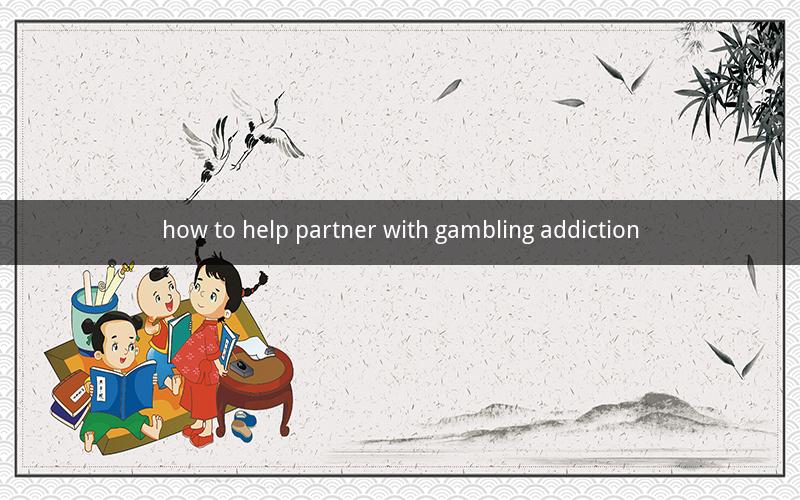
Table of Contents
1. Understanding the Problem
2. Communicating with Your Partner
3. Encouraging Professional Help
4. Building a Support System
5. Financial Support
6. Setting Boundaries
7. Educating Yourself
8. Managing Stress and Emotions
9. Patience and Understanding
10. Maintaining a Healthy Relationship
1. Understanding the Problem
The first step in helping your partner with a gambling addiction is to understand the problem. This involves recognizing the signs of addiction, such as secrecy, financial strain, and a preoccupation with gambling. Familiarize yourself with the statistics and the psychological aspects of gambling addiction to gain a deeper insight into the issue.
2. Communicating with Your Partner
Open and honest communication is crucial in addressing the problem. Encourage your partner to share their feelings and concerns without fear of judgment or punishment. Listen actively and empathetically, allowing them to express their struggles. Be supportive and express your willingness to help them through this challenging time.
3. Encouraging Professional Help
Seeking professional help is a vital component in overcoming a gambling addiction. Encourage your partner to attend counseling sessions, therapy, or support groups. Offer to accompany them to these sessions and provide transportation if needed. Research addiction specialists in your area and provide them with information about your partner's addiction.
4. Building a Support System
A strong support system can make a significant difference in the recovery process. Encourage your partner to surround themselves with positive influences, such as friends and family who are supportive of their journey. Attend support groups together, and consider forming a support group for yourself as well.
5. Financial Support
Gambling addiction often leads to financial distress. Provide financial support to your partner to help them rebuild their financial stability. However, it is important to establish boundaries to prevent enabling their addiction. Work together to create a budget and explore alternative sources of income.
6. Setting Boundaries
Setting clear boundaries is essential in maintaining a healthy relationship while dealing with your partner's addiction. Establish rules regarding financial matters, privacy, and other aspects of your relationship. Communicate these boundaries clearly and consistently, and be prepared to enforce them if necessary.
7. Educating Yourself
Educate yourself about gambling addiction to better understand your partner's struggles. Learn about the treatment options available, the psychological aspects of addiction, and the importance of maintaining a healthy lifestyle. This knowledge will help you provide informed support and make informed decisions.
8. Managing Stress and Emotions
Dealing with a partner's gambling addiction can be emotionally and mentally draining. It is crucial to take care of yourself and manage stress and emotions effectively. Engage in activities that promote relaxation, such as exercise, meditation, or hobbies. Seek support from friends, family, or professionals if needed.
9. Patience and Understanding
Recovery from a gambling addiction is a long and challenging process. Patience and understanding are essential during this journey. Accept that setbacks may occur, and be prepared to offer unconditional love and support. Encourage your partner to focus on progress, not perfection.
10. Maintaining a Healthy Relationship
Maintaining a healthy relationship while dealing with a partner's gambling addiction requires dedication and commitment. Focus on building trust and fostering open communication. Celebrate milestones and acknowledge the progress made. Remember that you are both on this journey together.
10 Questions and Answers
1. Q: How can I tell if my partner has a gambling addiction?
A: Look for signs such as secrecy, financial strain, preoccupation with gambling, and neglecting responsibilities.
2. Q: Should I confront my partner about their addiction?
A: Yes, but approach the conversation with empathy and support. Avoid judgment or confrontation, as it may worsen the situation.
3. Q: What can I do to encourage my partner to seek professional help?
A: Offer to accompany them to counseling sessions, research addiction specialists, and express your willingness to support them throughout the process.
4. Q: How can I support my partner during their recovery journey?
A: Be patient, understanding, and offer unconditional love. Encourage them to participate in support groups and maintain a healthy lifestyle.
5. Q: How can I protect myself from financial distress caused by my partner's addiction?
A: Establish clear boundaries, create a budget, and explore alternative sources of income. Consider seeking financial counseling if needed.
6. Q: Can a gambling addiction be cured?
A: While there is no cure for gambling addiction, it can be managed and controlled with proper treatment and support.
7. Q: How long does it take to recover from a gambling addiction?
A: Recovery from a gambling addiction varies from person to person. Some individuals may experience a shorter recovery period, while others may require long-term support.
8. Q: Can my partner's addiction affect our relationship?
A: Yes, it can strain the relationship. However, with open communication, understanding, and support, it is possible to maintain a healthy relationship.
9. Q: What can I do to cope with the emotional stress caused by my partner's addiction?
A: Engage in stress-relieving activities, seek support from friends and family, and consider seeking professional help if needed.
10. Q: Can I recover from the emotional toll of helping my partner with their addiction?
A: Yes, with time, support, and self-care, you can recover from the emotional toll of helping your partner. Remember to prioritize your own well-being throughout the process.